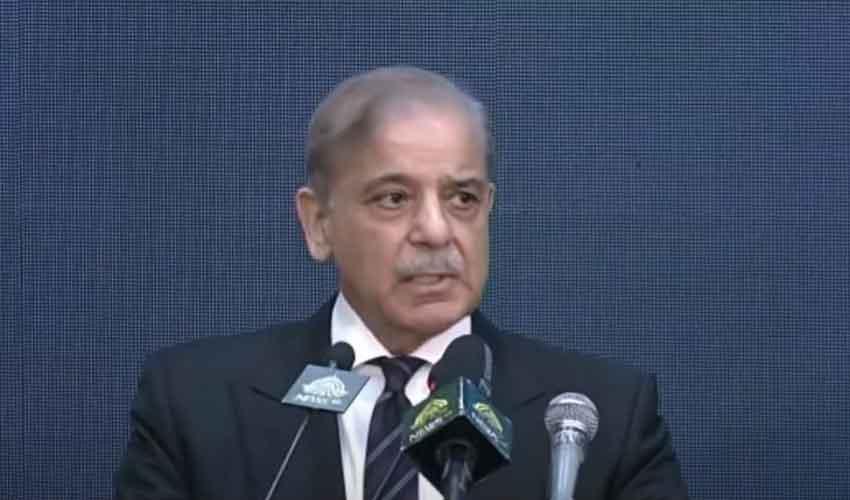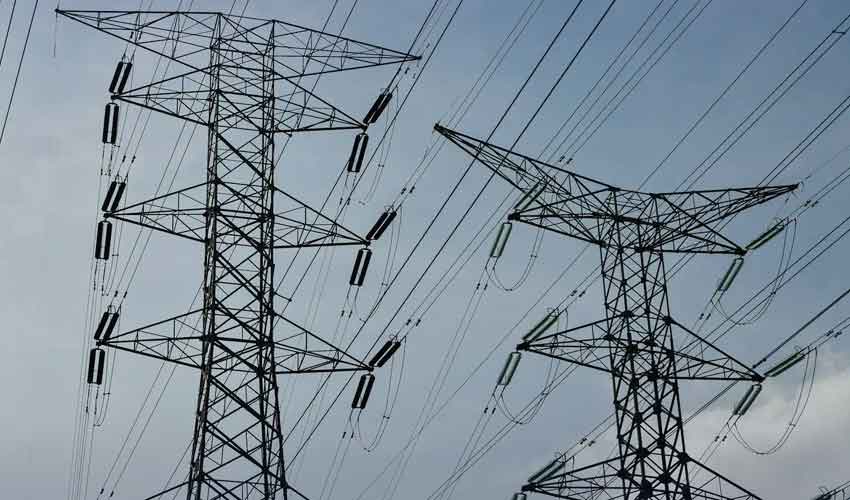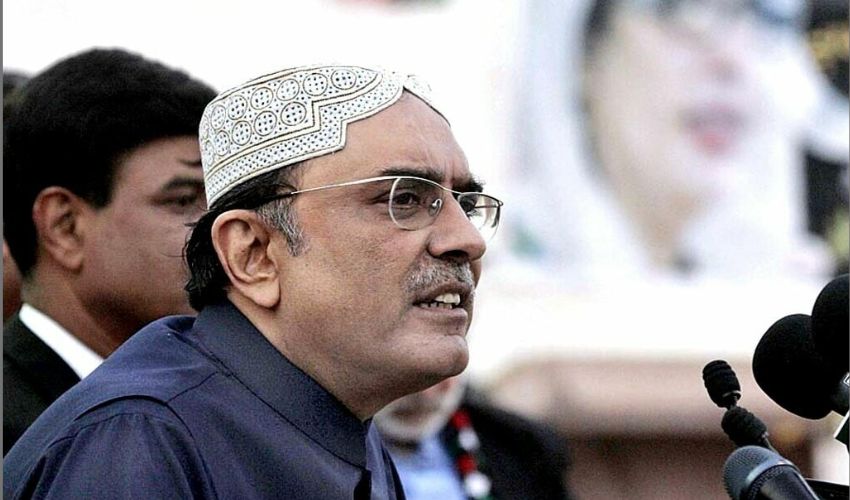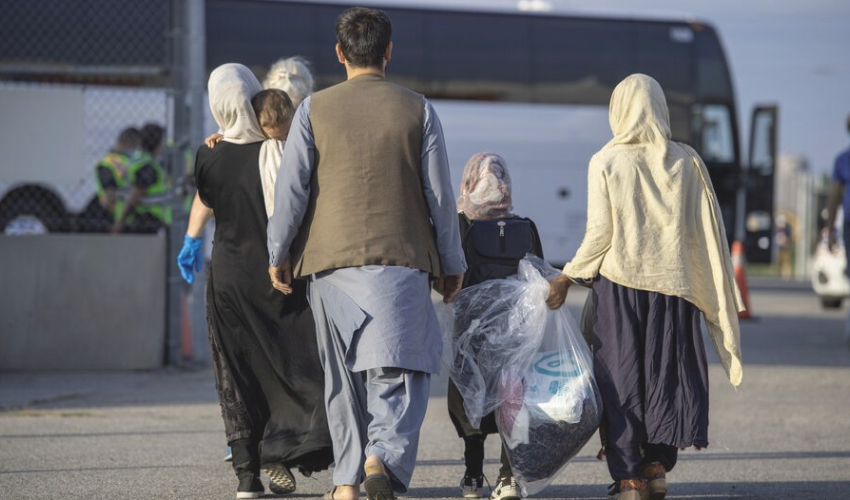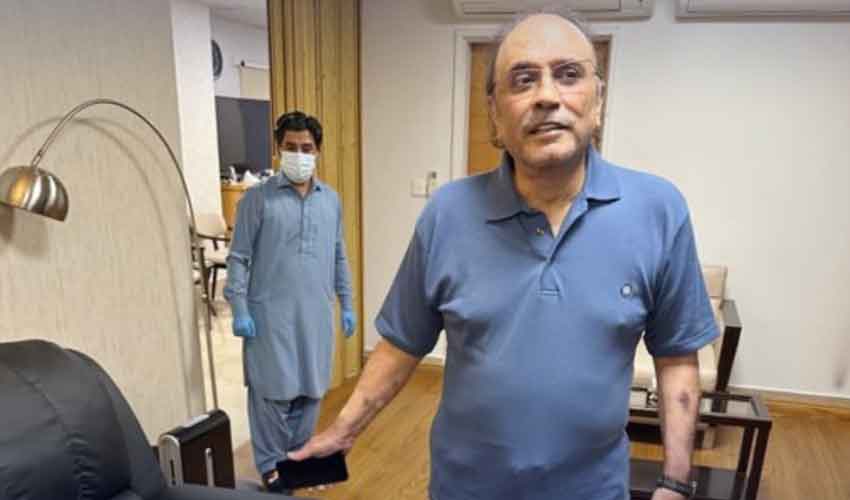Prime Minister Shehbaz Sharif has announced a major government initiative to reduce electricity prices. The announcement was made during a special ceremony in Islamabad, attended by Deputy Prime Minister Ishaq Dar, federal ministers, and key officials.
During his address, Prime Minister Shehbaz Sharif said the electricity price for domestic consumers was Rs48.70, while this year, electricity price for domestic consumers had been reduced by Rs3.50. He then announced that the electricity price for domestic consumers was being reduced by Rs7 and that all domestic consumers would get electricity at Rs34 per unit.
Moreover, the PM stated that the price of electricity per unit for industry was Rs58.50, and by now, that price had reached Rs48 with a decrease of Rs10. He then announced a reduction of Rs7.59 per unit for industry.
At the start, the PM extended Eid greetings to the nation, saying he had come to give good news about economic growth on the occasion of Eid. He highlighted the government's struggles in stabilizing the economy.
"When we took over, Pakistan was on the verge of default. Businessmen and the public were uncertain, instability was at its peak, and the IMF was not willing to cooperate. Opening letters of credit (LCs) was a challenge; industries were shutting down due to a lack of funds," he stated, recalling that there was no money to run power plants.
Shehbaz further lamented that those who brought Pakistan to the verge of default were celebrating and were sure no one could save Pakistan from default, no matter what. "Efforts were made day and night to save the country from default, but obstacles were created. The previous government even pulled out of its own agreement with the IMF, and the state was taken to a point it had never gone to before," he added.
However, he went on to say, Pakistan was saved from bankruptcy, and all the hard work paid off; the economy was on its way to prosperity.
The prime minister credited PML-N leader Nawaz Sharif for outlining in the manifesto that inflation would be brought down to a single digit in 2026, adding that the figure had dropped to a single digit in 2025. The PM emphasized the role of army chief Gen Asim Munir and other stakeholders in stabilizing the country’s financial situation. He said the nation has faced severe difficulties, for which a "surgery" would need to be conducted.
"We need to take correct and tough decisions for the betterment of the country. We are moving rapidly towards improvement," he added.
PM Shehbaz shared key economic indicators, stating that the country's inflation rate has dropped from 38% to 1.5%, and petrol prices have been reduced by Rs38 per litre in a year, which he claimed was the lowest in the region.
Additionally, he noted that:
- Pakistan’s interest rate has decreased from 22.5% to 12%.
- Inflation is expected to reach single digits by 2026 as per the party’s manifesto.
- The government has introduced the Ease of Doing Business Act to attract investments.
"Right and tough decisions are necessary for Pakistan’s economic prosperity. Privatization and right-sizing are part of this journey, and we will not be able to develop without eliminating wasteful subsidies," the PM added. "No subsidy can be given during the IMF program, as running businesses with subsidies is unfair."
The premier went on the note that last year, tax collection increased by 30%, and this year, the government aimed to increase it by 35%. "The success of this achievement is a result of collective efforts, with FBR and all relevant institutions working tirelessly. Increased tax revenue will allow Pakistan to reduce its reliance on loans," he stated.
The PM said further that Pakistan is blessed with trillions of dollars worth of mineral resources, yet Pakistan continued to import cotton worth billions of dollars.
IMF negotiations & electricity pricing
Furthermore, Shehbaz told the audience that convincing the IMF regarding electricity prices was not easy. "When the IMF suggested adjusting petrol prices instead, I insisted on discussing the matter directly with the managing director. By the grace of God, I was able to convince the IMF to reconsider its stance," he added.
He also said that the IMF did not intervene in independent power producers (IPPs) matters, yet this year, the government held discussions with IPPs, reminding them of their significant earnings and urging them to extend benefits to the nation.
Negotiations with IPPs & power sector reforms
He said the negotiations with IPPs resulted in a remarkable achievement, adding that the task force successfully settled dues, reducing payments by Rs3,696 billion. "Previously, the government had to pay this amount annually for the next 15 years, with the lifespan of these IPPs ranging from three to 25 years," he stated.
Additionally, the PM announced, the government had arranged Rs2,393 billion to address power sector circular debt, which included losses due to electricity theft and other inefficiencies. "Many power plants have been non-functional for years, failing to generate even a single megawatt of electricity. To address this, the first batch of these obsolete plants has been sold through a transparent process, generating Rs9 billion in revenue," he stated.
Energy sector reforms & task force
Federal Minister Awais Leghari praised PM Shehbaz's efforts in reforming the power sector, stating that the prime minister personally supervised energy sector improvements.
"A special task force was established under PM Shehbaz’s leadership, comprising energy experts who played a crucial role in implementing reforms," he stated, adding that PM Sharif tirelessly worked for the country's progress and did not show favouritism in decision-making.





